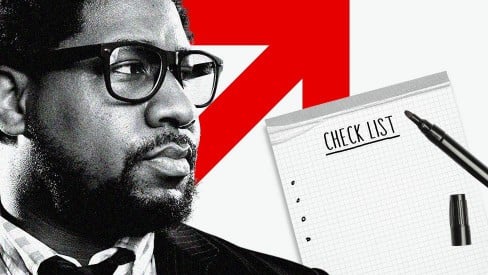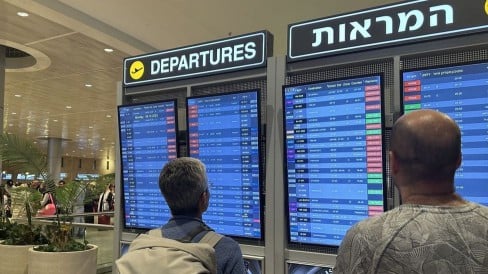Debt: What should I pay first and what can I do?

Another tough winter faces many people who have been struggling with the cost of living and may be seeing their debt demands rise.
The Financial Conduct Authority, which regulates financial services, says that 11 million adults in the UK struggle to pay their bills - a rise of 3.1 million compared with last year.
So what can you do if you find yourself in difficulty?
What steps should I take first?
Consumer advice charity Citizens Advice says that you should work out how much you owe, who to, and how much you need to pay each month.
Identify your most urgent financial demands. There are what are known as priority debts and bills because there can be serious consequences if you do not pay them, such as losing your home or facing court proceedings. They should be paid first.
They include rent, mortgage repayments, and loans secured on the home, gas and electricity bills, child support and maintenance payments, council tax, income tax, VAT and other taxes, TV licence payments, court fines and payments.
Calculate how much you can cover in debt repayments. Create a budget by adding up your essential living costs like food and housing, and take these away from any income such as your wage or benefits you receive.
After than move on to looking at other debts, although failure to pay could still lead to the arrival of bailiffs. These are credit cards, store cards, buy-now-pay-later payments, overdrafts, unsecured loans and water bills. Ignoring them would still see the cost of those debts spiral.
Always see how you could boost your income, primarily by checking what benefits you are entitled to, and whether you are eligible for a council tax reduction or a lower tariff on your broadband or TV package.
How to check if you can claim a benefit
- Guide to benefits. when you qualify and what to do if something goes wrong, from the independent MoneyHelper website, backed by government
- Check benefits calculators run by Policy in Practice and charities Entitledto and Turn2us
Who can I talk to?
It is important that you do talk about financial difficulties before finding yourself in a spiral of debt. The earlier, the better.
If you think you cannot pay your debts or are finding dealing with them overwhelming, seek support straight away. You are not alone and there is help available. A trained debt adviser can talk you through the options available.
Information and support is available and free of charge - click here to find out about organisations who may be able to help.
My energy bills are the biggest problem. Will my supplier help?
Your supplier must give you a chance to clear your debt through a payment plan first.
If you don't agree a plan with your supplier, it has been the case that they might try to force you to have a prepayment meter installed, or they may switch your existing smart meter to prepayment mode.
But since it emerged that meters were being forcibly fitted into the homes of vulnerable people, companies are now required to pass certain tests before they can switch customers.
I need some time to get myself sorted. What do I do?
People receiving debt advice can apply for the break, which lasts for up to 60 days, to prevent them falling into a spiral of debt.
Image source, Getty Images
People receiving mental health crisis treatment can apply for a scheme which lasts for the length of that treatment, plus another 30 days.
Consultation is under way for a similar scheme in Northern Ireland. In Scotland, an alternative short-term debt relief system is known as a Statutory Moratorium.
What happens if there is no prospect of paying off debts?
For some people, there is little or no chance of paying off debts, and so they may have to consider some form of personal insolvency.
This should only be done after seeking advice. There are different forms of insolvency which may be considered depending on your circumstances and where you live.
Bankruptcy: This is the most serious option, which involves an official receiver being appointed to sell off your assets to pay your debts. If you own a house or a car you may lose them.
The bankruptcy will affect your credit record for at least six years. But after one year all your debts will be written off. The procedure currently costs 拢680, but you can pay in instalments.
Individual Voluntary Arrangement: Under an IVA, an insolvency practitioner will help you strike a deal with your creditors, which allows you to pay off your debts over a fixed period - say five years. Once approved, all interest on unsecured debt is frozen.
There is less stigma with an IVA, and a greater chance of you keeping your home if you own one.
Debt Relief Order: This form of insolvency, introduced in 2009, is the easiest of all. Your debts must not exceed 拢30,000. If your application is accepted, some debts will be frozen for one year, then written off. A DRO costs 拢90.
Insolvency in Scotland: If you live in Scotland, bankruptcy is known legally as sequestration. However there are three alternatives: a Debt Arrangement Scheme, a Debt Management Plan, or a Trust Deed.

